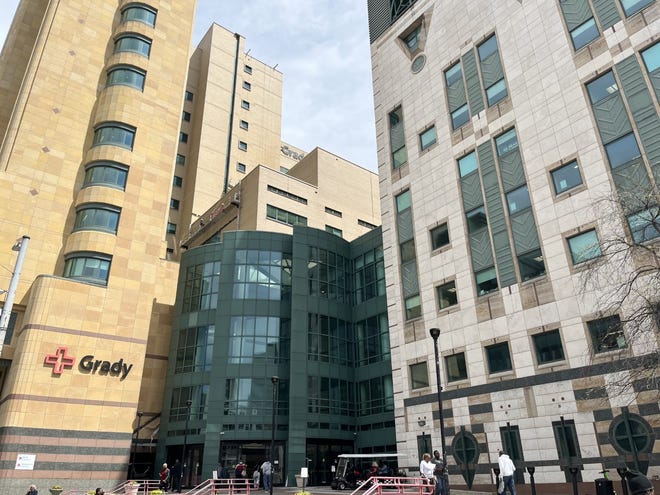But patient advocates and Democratic lawmakers in Georgia have said there is more urgency to providing insurance coverage for the medical needs of the uninsured by embracing the Medicaid expansion. Hospitals, like Emanuel Medical Center, would benefit from Medicaid reimbursements for patients who often rack up unpaid healthcare bills.
Uninsured people “will not get preventive care, which drives up health care costs,” said Sen. Elena Parent, an Atlanta-area Democrat. “The state should have expanded Medicaid.”
That expansion won’t happen in Georgia in the near term, as Republican Gov. Brian Kemp is set to launch new Medicaid enrollment limits for low-income adults, with work requirements attached.
Under Directed Payments, additional funding for hospitals and other Medicaid medical providers comes through a variety of channels, including minimum fees for services, general reimbursement increases, and salary increases based on quality of care. .
Payments are based on the volume of services provided. If one hospital served more Medicaid patients than another, its reimbursements would be higher, Lipson said.
“CMS was initially surprised by the volume of directed state payment proposals,” Lipson said. Some states have 25 or more, she added. They must be renewed annually. Often, states fund their share through hospital assessments or money transferred from public funds, such as hospital authorities, county governments, and state agencies.
Georgia has five such directed payment plans. Their goals include increasing Medicaid salaries for hospitals and doctors, strengthening the health workforce, and improving health outcomes and equity, said State Department Commissioner Caylee Noggle. of Community Health, which administers Medicaid in Georgia.
Grady Memorial Hospital in Atlanta, a major safety net provider, said it expects to earn $139 million from four of the Georgia programs.
“That’s a huge plus for us,” said Ryan Loke, Grady’s policy director. “Without that money, Grady would be in a much worse position.”
Grady is seeing more Medicaid and uninsured patients who previously used the nearby Atlanta Medical Center, which closed last year.
State Sen. Ben Watson, a physician and Savannah-area Republican, pointed out that these safety-net hospitals, which serve a large portion of people who don’t have health coverage, receive a higher salary. high through Medicaid-directed payments, helping them cover some losses. .
Georgia plans to use these funding streams as the basis for providing additional support to rural hospitals.
With the additional payments, Grady and other hospitals will approach or reach their normal funding limit for hospitals that serve a “disproportionate share” of indigent patients. The state would take about $100 million of that excess money and send it to rural hospitals.
The Georgia Hospital Association said the money from the directed payment is helpful but will not cover the costs of charitable care for the uninsured.
“They don’t look [hospitals’] bad debt,” said group executive Anna Adams. “An insured patient is a healthier patient. We would like to see as many people covered as possible.
Officials at rural Georgia hospitals, meanwhile, are eagerly awaiting the planned increase in Medicaid funds.
“This is going to put money in the coffers of struggling rural hospitals,” said Jimmy Lewis, CEO of HomeTown Health, an association of rural hospitals in the state.
Damien Scott, CEO of Emanuel Medical Center, said he was “cautiously optimistic” about the allocation ahead. On his wish list: attracting a pediatrician to his county — he currently has none — and gaining space to move the hospital’s only MRI machine from a truck into the hospital building .
As things stand, he said, “every month we are fighting for our survival.”
KHN (Kaiser Health News) is a national newsroom that produces in-depth journalism on health issues. Along with policy analysis and polls, KHN is one of the three main operating programs of the KFF (Kaiser Family Foundation). KFF is an endowed non-profit organization providing information on health issues to the nation.
